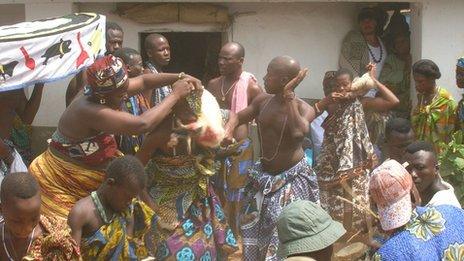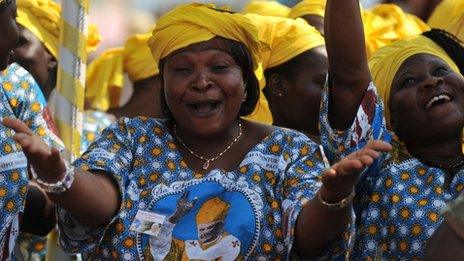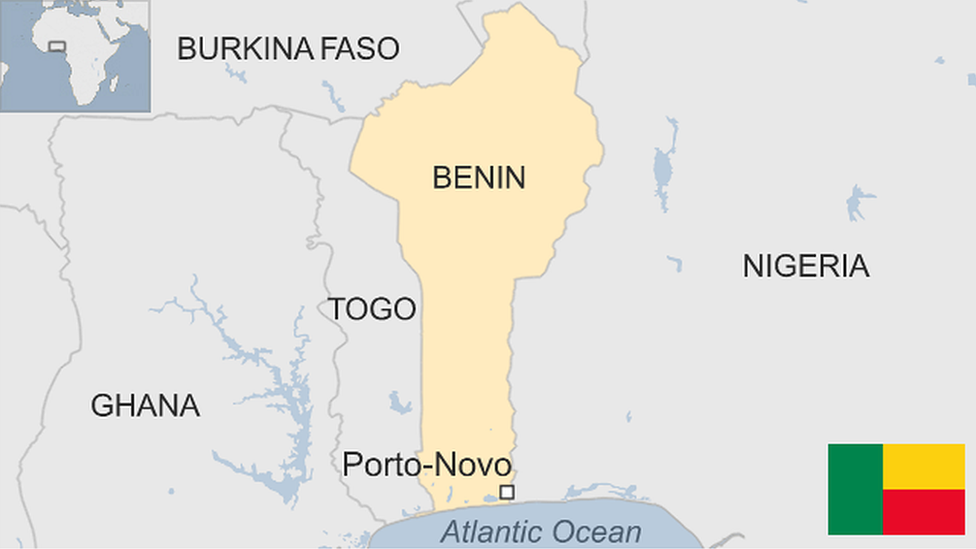The reality of Voodoo in Benin
- Published

Animals are often sacrificed in order to bring good luck
As Pope Benedict XVI visits Benin, widely seen as the home of Voodoo, Virgile Ahissou from BBC Afrique explains the reality behind what is often a misunderstood religion.
Voodoo is completely normal in Benin.
People across West Africa, especially Togo, Ghana and Nigeria hold similar beliefs but in Benin it is recognised as an official religion, followed by some 40% of the population.
Voodoo Day is a public holiday and there is a national Voodoo museum.
It has none of the negative connotations it has in the West and many of those who are officially Christian or Muslim also incorporate some Voodoo elements into their beliefs, especially in times of crisis.
But Voodoo is more than a belief system, it is a complete way of life, including culture, philosophy, language, art, dance, music and medicine.
The Voodoo spiritual world consists of Mahou, the supreme being and about 100 divinities - or Voodoos - who represent different phenomena, such as war and blacksmiths (Gou), illness, healing and earth (Sakpata), storms, lightning and justice (Heviosso) or water (Mami Wata).
Voodoo priests ask these gods to intervene on behalf of ordinary people but local adherents stress that they have nothing to do with sorcery or black magic.
People here do not stick needles into dolls to cause misfortune to their enemies, as you see in some Western films - this image may have arisen from the icons of a particular god which a priest may have in their shrine.
Some Voodoo priests use herbs to cure the sick - and possibly to poison enemies.
They also sometimes ask for offerings, such as a chicken or a sheep, which is then sacrificed to the divinity, or some alcohol is poured onto the floor.
This can happen when asking for help or when you wish has been granted.
People seek help on a variety of issues - to be cured of a disease, find a job, complete a business deal, find a spouse or have a child.
- Published18 November 2011

- Published28 July 2023
